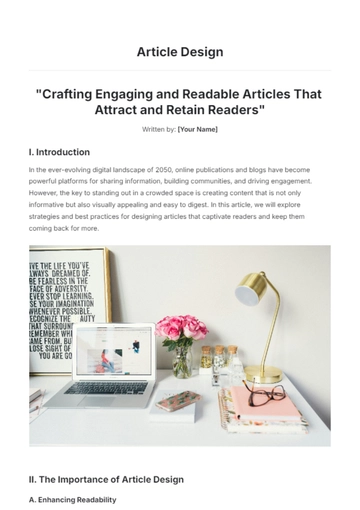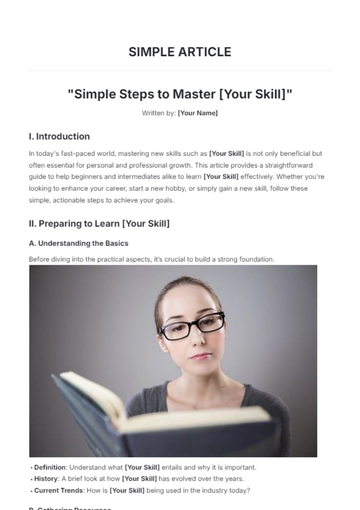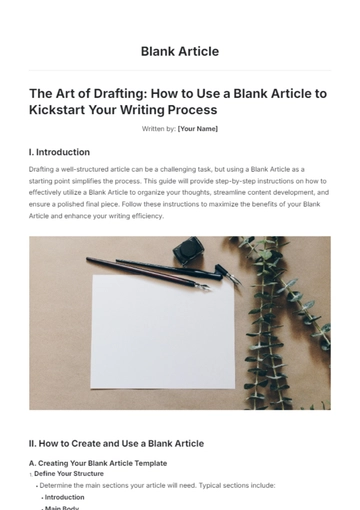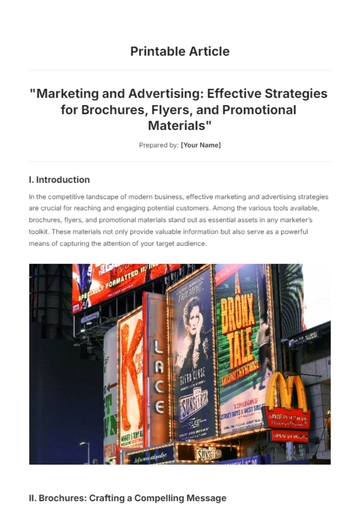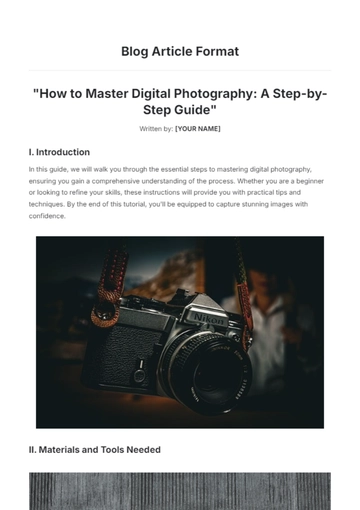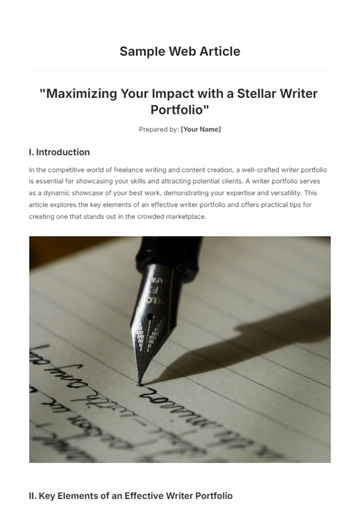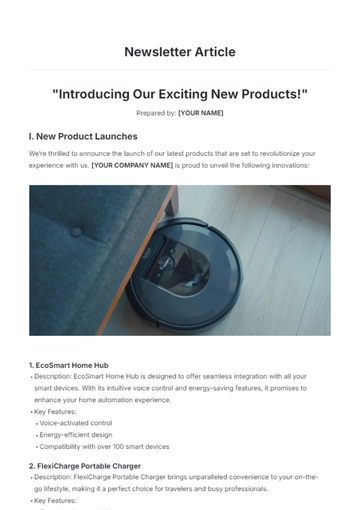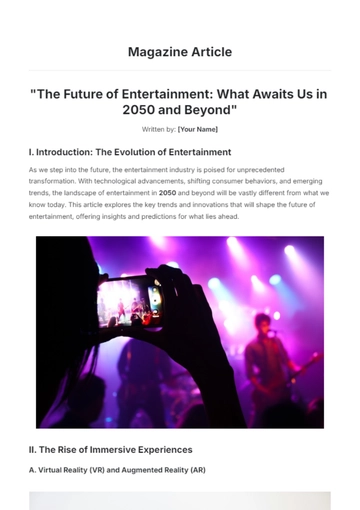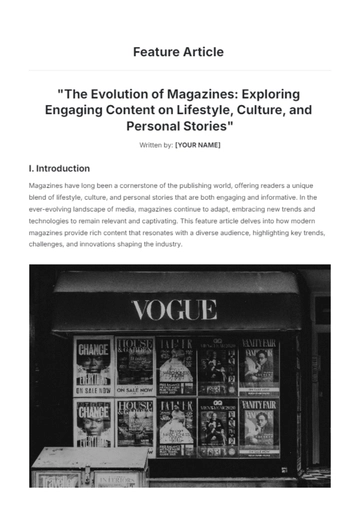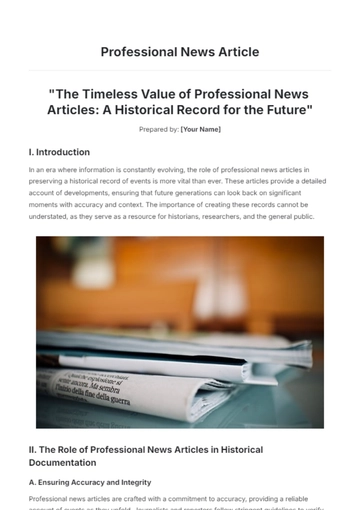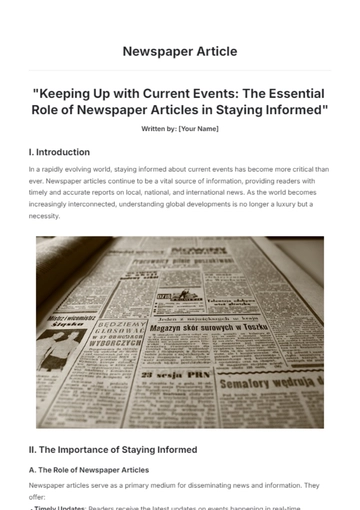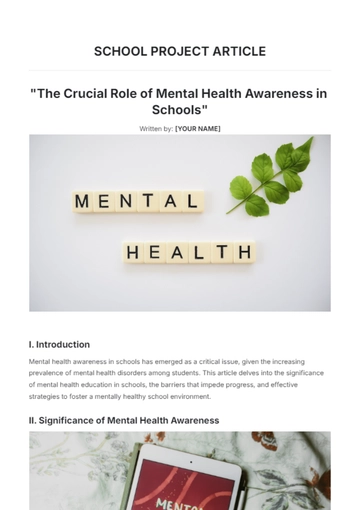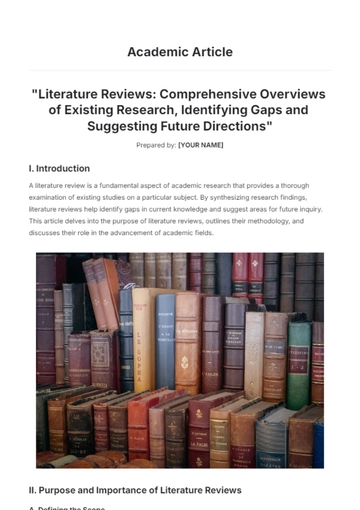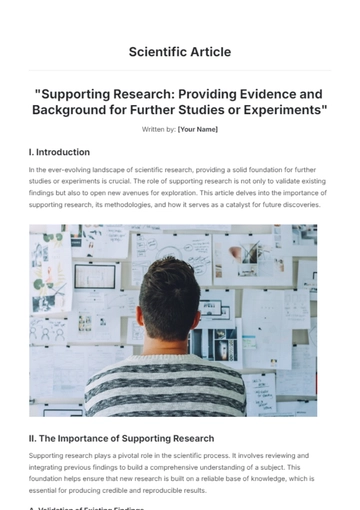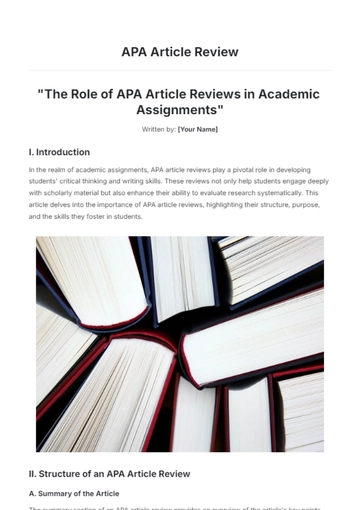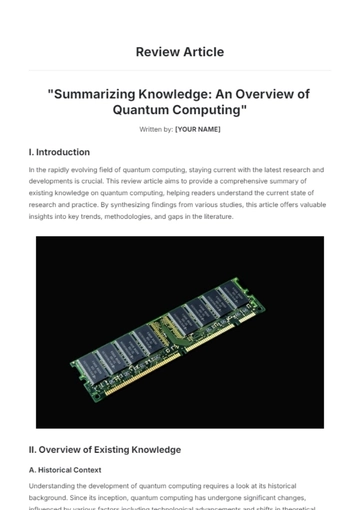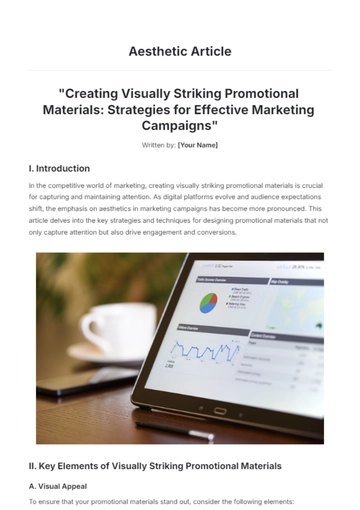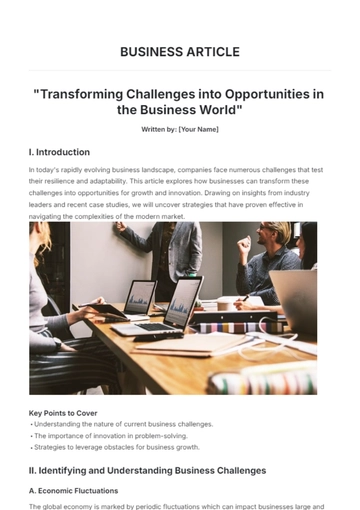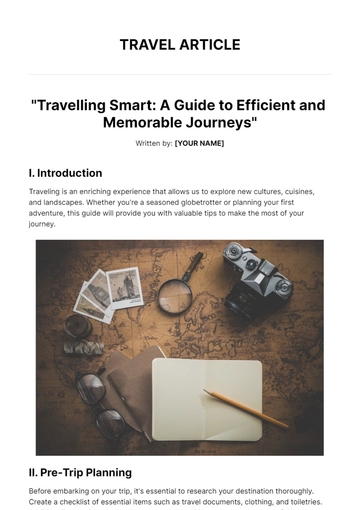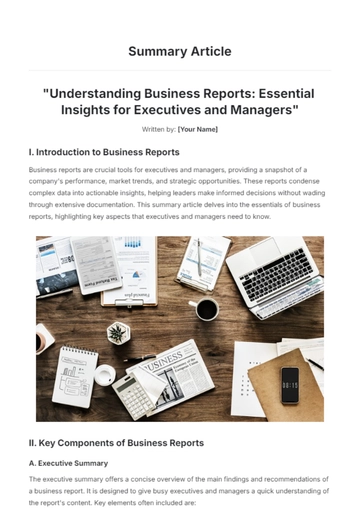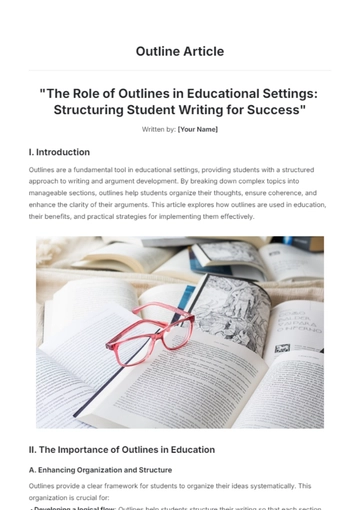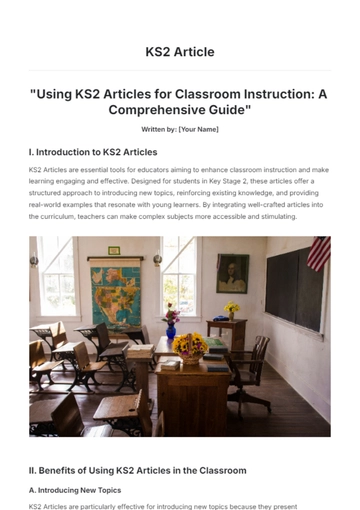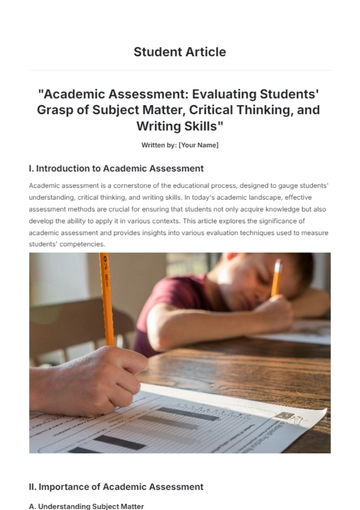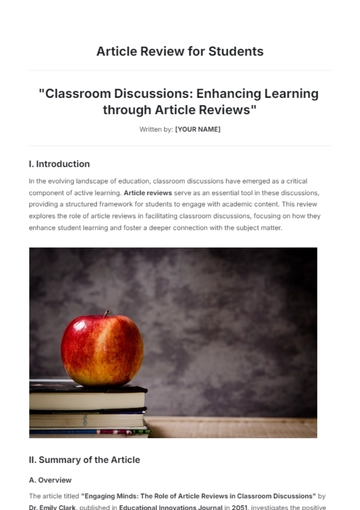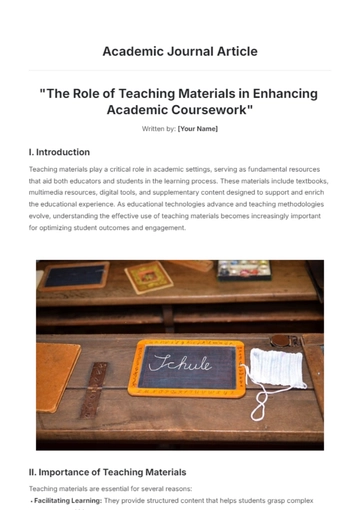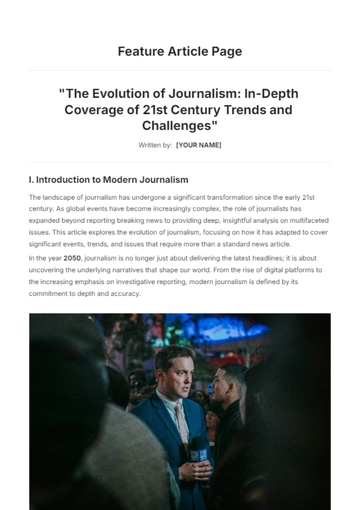Free Journal Article for Students
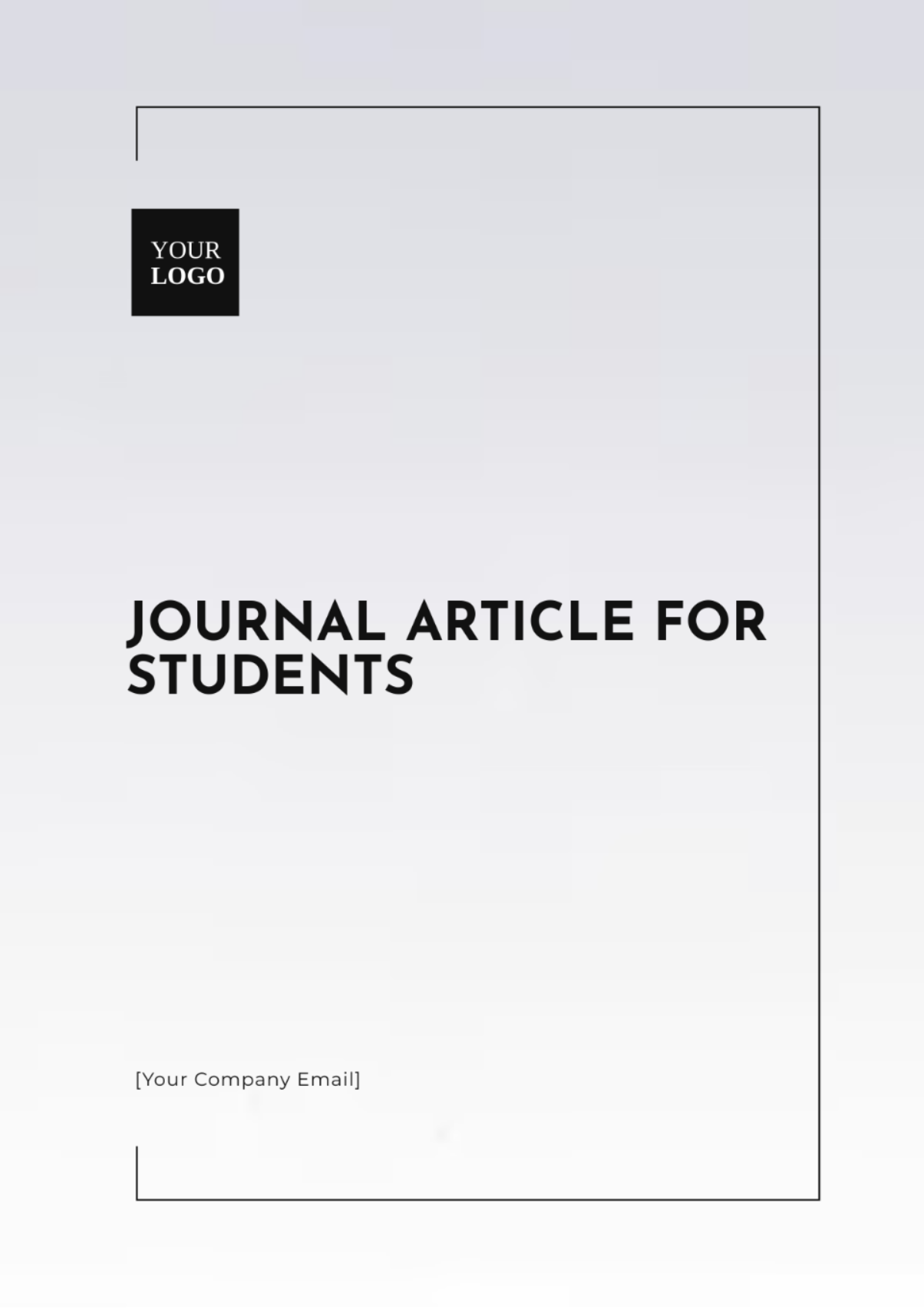
Prepared By: [YOUR NAME]
Date: [DATE]
I. Abstract
This article explores effective learning strategies for students, focusing on their impact on academic performance and personal development. Through an extensive literature review, detailed methodology, and comprehensive analysis of results, this study provides insights into the most beneficial techniques for fostering better learning outcomes. The study concludes with practical recommendations for students and suggestions for future research.

II. Introduction
Education plays a pivotal role in shaping an individual's future. However, students often face challenges in adopting effective learning strategies that enhance their academic performance. This research investigates various techniques available to students, examining their effectiveness and providing valuable insights. The main objectives are to identify successful strategies, evaluate their impact, and offer practical recommendations to improve student learning experiences.
III. Literature Review
The literature on learning strategies is extensive, with numerous studies highlighting the critical role of effective techniques in enhancing student performance. Research consistently shows that certain methods significantly impact students' understanding and retention of knowledge.
Active Learning Methods: According to Smith et al. (2050), active learning techniques, such as collaborative learning and problem-based learning, are highly effective in improving students' grasp of material. These methods engage students more deeply, fostering better comprehension and retention.
Spaced Repetition and Retrieval Practice: Brown, Roediger, and McDaniel (2050) emphasize the value of spaced repetition and retrieval practice. Their research suggests that these techniques help reinforce learning over time, enhancing long-term retention and recall.
This review synthesizes existing research to provide a comprehensive overview of effective learning strategies. By integrating findings from various studies, it highlights the practical implications of these techniques for improving educational outcomes.
IV. Methodology
The research methodology involved a mixed-methods approach, combining quantitative and qualitative data collection. A survey of 200 students from various educational institutions gathered information on their learning strategies and academic performance. Additionally, focus group discussions provided deeper insights into student experiences and preferences. Data were analyzed using statistical software to identify patterns and correlations.
V. Results
The analysis of the collected data revealed significant insights into the effectiveness of various learning strategies on academic performance.
A. Quantitative Findings
Active Learning Strategies: Students who engaged in active learning techniques, such as group discussions and interactive activities, demonstrated notably higher scores on academic assessments. This contrasts with students who relied primarily on passive methods like note-taking and reading.
Comparison of Techniques: Statistical analysis showed a clear advantage in academic performance for those using active learning methods. These students outperformed their peers who did not incorporate such strategies.
B. Qualitative Findings
Motivation and Resource Availability: Focus group discussions highlighted that motivation and resource access are key to adopting effective learning strategies, with students noting that proper tools and a supportive environment greatly impact their success.
Experiences and Preferences: The qualitative data provided deeper insights into personal experiences and preferences, revealing that motivation and available resources were key factors in students' choices and the effectiveness of their learning strategies.
Overall, the findings suggest a strong correlation between the use of active learning methods and improved academic performance, while also highlighting the importance of motivational factors and resource availability in optimizing learning outcomes.
VI. Discussion
The results of this study align with existing literature on the benefits of active learning strategies. The positive impact of these techniques on student performance underscores the need for educational institutions to encourage their use. Additionally, the findings highlight the role of motivation and access to resources in facilitating effective learning. These insights can inform the development of educational policies and practices aimed at enhancing student learning experiences.
VII. Conclusion
In summary, this study identifies several effective learning strategies that significantly improve student academic performance. Active learning methods, motivation, and resource availability are crucial factors in this process. Future research should explore the long-term effects of these strategies and investigate additional factors influencing their adoption. Educational institutions should prioritize integrating active learning techniques into their curricula to foster better student outcomes.
VIII. References
Brown, P. C., Roediger, H. L., & McDaniel, M. A. (2050). Make It Stick: The Science of Successful Learning. Harvard University Press.
Smith, J., Adams, R., & Brown, L. (2050). Effective Learning Strategies: An Educational Perspective. Academic Press.
- 100% Customizable, free editor
- Access 1 Million+ Templates, photo’s & graphics
- Download or share as a template
- Click and replace photos, graphics, text, backgrounds
- Resize, crop, AI write & more
- Access advanced editor
Empower students to publish with Template.net's Journal Article for Students Template. This fully editable and customizable template is designed to guide students through the article-writing process. Editable in our AI Editor Tool, it offers a structured format that simplifies the writing process and ensures students can produce professional-quality journal articles.

